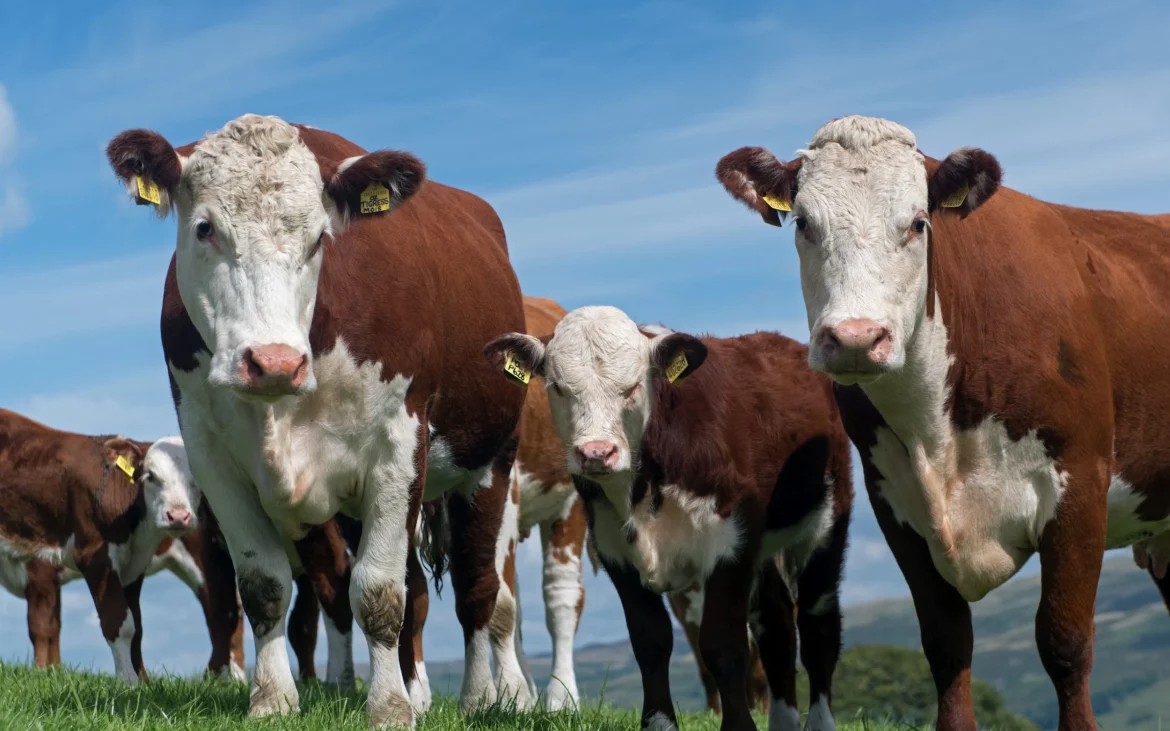As part of plans by the UK to achieve its climate goals, cows could be given “methane blockers” to reduce their emissions of the greenhouse gas.
The proposal have been embraced by farmers, which follows a consultation that began in August on how new types of animal feed product can reduce digestive emissions from the animals.
Green campaigners, however, remained sceptical, arguing that the move would not address the other major environmental harms resulting from the beef and dairy industries and showed a fixation on “techno fixes” rather than reducing consumption.
Methane from cattle burps and manure is a major contributor to greenhouse gas emissions; cows and other farm animals are responsible for about 14% of human-induced climate emissions. There are about 9.4m cows and calves in the UK.
In its net zero growth strategy published last week, the government said that it expected “high-efficacy methane-suppressing products” to enter the market from 2025 and could force farmers to use them if they prove effective.
“We … will explore the role of industry and government to maximise uptake of such products for suitable cattle farm systems at pace, through a phased approach.
“This will include the ambition to mandate the introduction of products with proven safety and efficacy in compound feeds for cattle as soon as practically possible in England,” it said.
According to Tom Bradshaw, deputy president of the National Farmers’ Union (NFU), most of the methane emitted by cows is released by belching and “the evidence suggests these products could be useful,” he said. “I don’t think we know enough yet about the impact they will have on the efficiency of the diet … but it’s something that we have to investigate to try and reduce methane emissions.”
He added that methane-suppressing products are being trialled in the UK but have yet to yield evidence as to what extent they work, putting the government under criticism for a reliance on unproven technologies to pursue its climate goals.
Vicki Hird, head of farming for Sustain, an alliance of organisations that promote better food and farming, was similarly sceptical of the methane blocker plan.
Read also: New oilfield in the North Sea would blow the UK’s carbon budget
“Governments and industry love their techno fixes like cattle feed methane suppressants and these may help a bit.
“But they won’t fix the major harms associated with our huge livestock fixation, from rainforest clearance for feeds and pasture to UK river pollution and harm to wildlife, all of which inhibit action on climate, too. We need to produce and eat less and better meat using agro-ecological tools known for whole farm and nature benefits,” he said.
As the Food Standards Agency is responsible for licensing all animal feeds, it would have to carry out an extensive risk assessments of the impacts of each additive on animal health and welfare, food safety risks, risk to workers, wider environmental risks, and of the efficacy of the products, before licensing them for use in feed to reduce methane, according to the NFU.
Although there are no additives licensed and available for use in the UK that suppress methane at the moment, applications for such have been submitted while the trials are conducted.
Bradshaw also pointed to genetic advances, namely breeding cows and sheep that emit less methane. Some countries, such as New Zealand, say they have reduced methane emissions from cattle through genetics.
A government spokesperson said: “Well-managed livestock can provide various environmental benefits and we plan to encourage the uptake of high-efficacy methane-suppressing products once they reach the UK market.”
The government is yet to publish its response to the consultation of the farming industry, scientists and the public on cattle feed.
Story was adapted from the Guardian.
